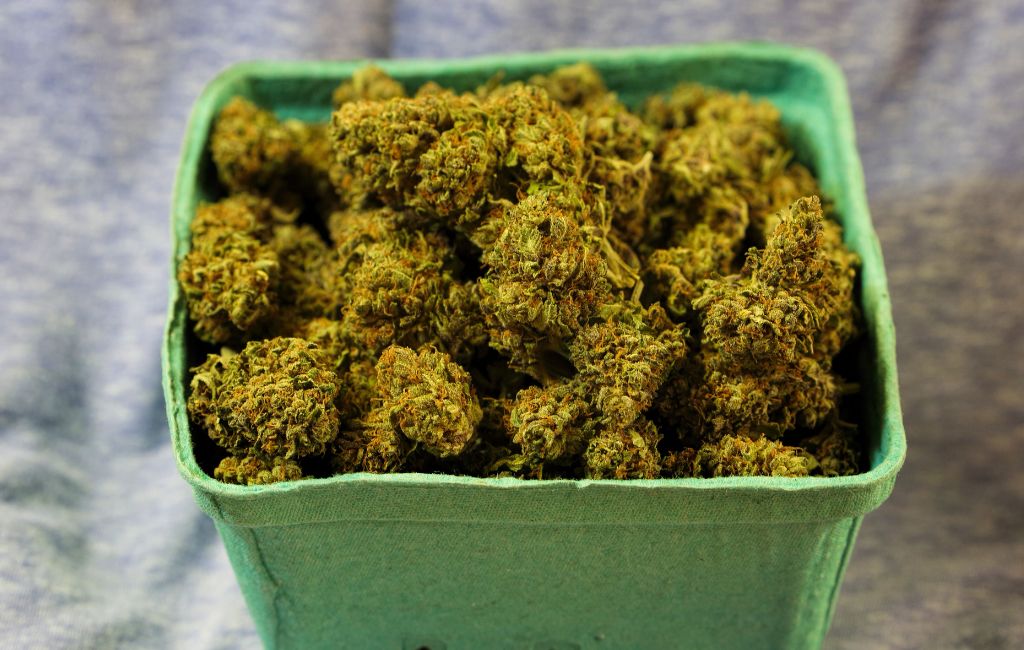THCa Flower for Sleep: Restful Nights
In recent years, the exploration of cannabis and its compounds has gained significant attention, particularly in the context of sleep improvement. Among these compounds, THCa (tetrahydrocannabinolic acid) has emerged as a potential aid for those seeking restful nights. This article delves into the properties of THCa flower for sleep, supported by research and anecdotal evidence.
Understanding THCa
THCa is a non-psychoactive cannabinoid found in raw cannabis plants. Unlike THC (tetrahydrocannabinol), which is known for its psychoactive effects, THCa does not produce a “high.” This makes it an attractive option for individuals looking to harness the therapeutic benefits of cannabis without the mind-altering effects.
When cannabis is heated, THCa converts into THC through a process called decarboxylation. However, when consumed in its raw form, THCa retains its non-psychoactive properties, offering potential health benefits without intoxication.
Potential Benefits of THCa for Sleep
Research into the effects of THCa on sleep is still in its early stages, but preliminary findings and anecdotal reports suggest several potential benefits:
- Anti-inflammatory Properties: THCa is believed to possess anti-inflammatory properties, which can help alleviate pain and discomfort that may disrupt sleep.
- Anxiety Reduction: Some users report a calming effect from THCa, which may help reduce anxiety and promote relaxation, leading to improved sleep quality.
- Neuroprotective Effects: Emerging studies suggest that THCa may have neuroprotective properties, potentially supporting brain health and reducing sleep disturbances.
Case Studies and User Experiences
While scientific research is ongoing, many individuals have shared their experiences with THCa flower for sleep improvement. For instance, a study published in the Journal of Clinical Sleep Medicine highlighted a case where a patient with chronic insomnia reported significant improvements in sleep quality after incorporating THCa into their routine.
Another user, Jane, shared her experience on a popular cannabis forum. She described how consuming THCa flower in the evening helped her unwind and fall asleep more easily, without the grogginess she experienced with traditional sleep aids.
How to Use THCa Flower for Sleep
For those interested in trying THCa flower for sleep, there are several methods of consumption:
- Raw Consumption: THCa can be consumed in its raw form by adding it to smoothies or salads. This method preserves its non-psychoactive properties.
- Tinctures and Oils: THCa tinctures and oils offer a convenient way to incorporate the compound into your nightly routine. These products can be taken sublingually or added to beverages.
- Topical Applications: For localized relief, THCa-infused creams and balms can be applied to areas of discomfort, potentially aiding in relaxation and sleep.
Scientific Insights and Statistics
While comprehensive studies on THCa are limited, existing research on cannabis and sleep provides valuable insights. A study published in the journal Sleep Medicine Reviews found that cannabinoids, including THCa, may influence the sleep-wake cycle by interacting with the endocannabinoid system.
Additionally, a survey conducted by the National Sleep Foundation revealed that approximately 30% of adults experience insomnia symptoms. With the growing interest in natural sleep aids, THCa presents a promising avenue for further exploration.
Considerations and Precautions
Before incorporating THCa flower into your sleep routine, it’s advisable to consult with a healthcare professional, especially if you have underlying health conditions or are taking other medications. While THCa is generally considered safe, individual responses may vary.
It’s also important to source THCa products from reputable suppliers to ensure quality and purity. Look for products that have undergone third-party testing to verify their cannabinoid content and absence of contaminants.
Conclusion
THCa flower offers a unique approach to improving sleep quality, with its non-psychoactive properties and potential therapeutic benefits. While research is still evolving, anecdotal evidence and preliminary studies suggest that THCa may help reduce inflammation, alleviate anxiety, and promote relaxation, contributing to more restful nights.
As interest in natural sleep aids continues to grow, THCa stands out as a promising option for those seeking an alternative to traditional sleep medications. By understanding its properties and potential benefits, individuals can make informed decisions about incorporating THCa into their sleep routines.
